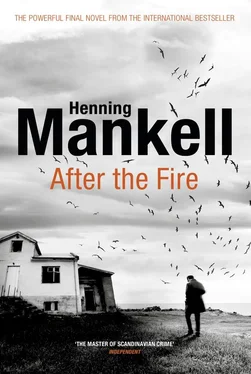I had gone to Paris for a week because my exams were over. I went alone, looking forward to strolling along the boulevards. I had no plans other than to immerse myself in the anonymity of the city.
I found a small, shabby boarding house not far from the Sorbonne, then went out for something to eat. There were no demonstrations, no burning cars, no ranks of riot police. I turned into a side street where I knew there were a number of restaurants. It was a very short street, and in seconds two police cars arrived and blocked off both ends. A large number of officers poured out and arrested everyone in sight. There was no explanation; I was simply thrown in the back of a dark blue police van with barred windows and driven away. We were an odd mixture of men and women, French workers, students and foreign tourists. Nobody knew what was going on. One of the women started to cry. I don’t remember whether I was afraid or merely surprised. However, I do recall that I was very hungry.
I didn’t get any food until the following day. We were delivered to the police station on the Île de la Cité and bundled into a gigantic windowless cellar. I counted over two hundred people sitting on the stone floor or on the benches lining the whitewashed walls. I could see no connection between the members of this disparate group. Some of the women might have been prostitutes, judging by their clothing, but most were perfectly ordinary people. No doubt many of them were just as hungry as I was.
Our passports or ID documents were taken away, but no one would tell us why we had been arrested. During the night a rumour spread, alleging that it had nothing to do with the student protests. Apparently some hitchhikers had murdered a driver somewhere between Rouen and Paris. I looked around the enormous prison cell and couldn’t see anyone that looked like a hitchhiking killer.
In the morning I was taken to an interview room, where I explained that I was a medical student, that I had a week off and was staying in a boarding house in Paris. The officer sighed, returned my passport and suggested that I should avoid open areas for the rest of my visit. As I was hungry and tired after a sleepless night on the concrete floor, I immediately replied, ‘I’m on the side of the students, of course.’
I went straight to a cafe and ordered coffee and sandwiches. I spent the rest of the week sticking close to the walls of buildings whenever I ventured out, and I felt a surge of anxiety every time I saw a police car.
I gave the directories back to Monsieur Pierre and left the hotel, taking care not to leave any fingerprints on the newly polished glass doors.
The sun was shining through a thin mist. I was struck by the fact that the people I saw, with very few exceptions, were younger than me. It had never been more noticeable. I was part of a marginal group on my way out of this life. Every person who passed me drove the point home as they hurried towards destinations of which I knew nothing.
When I was young I was one of those people who used to run up the escalator. I was always in a rush, even if I wasn’t actually going anywhere in particular. One desolate Midsummer’s Eve in Stockholm I went to visit the Museum of Modern Art in Skeppsholmen. Afterwards I followed an attractive woman, who must have been ten years older than me, taking care to keep my distance. My only aim was to watch her walking in front of me. We had reached Norrmalmstorg when she suddenly stopped, turned and smiled. I caught up with her and she asked what I wanted.
‘Nothing,’ I said. ‘I guess we’re just going in the same direction.’
‘No,’ she replied. ‘We’re not. And you are going to stay here and stop following me, otherwise I won’t be smiling.’
I watched her turn into Biblioteksgatan. At that moment I wasn’t the oldest person on the street.
The memory of that long night in the prison cell had made me hungry. I strolled down the street and couldn’t help calling in at La Coupole, even though I suspected that particular restaurant charged an arm and a leg because of its reputation. To my surprise it wasn’t too busy. I was immediately shown to a table for one overlooking the pavement cafe.
I studied the menu, trying to get used to the noise echoing around the room. I had sat here alone or in company each time I visited Paris — sometimes very late at night, occasionally during the peaceful hours of the afternoon. I had once initiated a conversation with an American lady on the next table; it transpired that she was a doctor at a hospital in Tulsa. For some reason which I still don’t understand, I didn’t tell her that I was a doctor; instead I turned myself into an architect with a small practice in a town in Denmark. I must have been very drunk, I think, and amused by the idea of putting on a mask and pretending to be someone else. I vaguely remembered the meaningless and totally fictitious descriptions of a manor house I was busy designing.
I dismissed my memories of the American lady. After some indecision I plumped for a pasta dish and a beer. The waiter had beads of sweat on his forehead. Even before he had finished taking my order, he was on his way to another table.
My sense of being the oldest person was reinforced when I glanced around the restaurant. The waiters were young, and most of the diners were nowhere near my age. There was the odd middle-aged man or woman, but they were few and far between.
I ate my meal and ordered a Calvados with my coffee afterwards. By the time I emerged my head was a little woolly. I decided to walk all the way to the Swedish embassy on Rue Barbet-de-Jouy, near Varenne. I didn’t need a map to find my way from Montparnasse. All thoughts of my age had vanished; I was enjoying being out and about on the streets of Paris.
I went wrong more than once, and it took me a long time to reach the embassy. The gold-coloured sign below the Swedish state insignia informed me that the consular section was open. I went to a nearby cafe and had an espresso while I thought through the events that had been set in motion by Louise’s desperate phone call. I needed the embassy’s help to track her down and possibly to obtain legal representation and support.
I crossed the street and went inside. The woman on reception spoke Swedish with a French accent. I explained why I was there.
‘How old is your daughter?’ she asked.
‘She’s forty. She’s also expecting her first child.’
‘And you’re sure she’s been arrested?’
‘She wouldn’t lie about something like that.’
‘But she didn’t tell you where she was?’
‘She didn’t have time. That’s why I’m here.’
‘And she’s accused of being a pickpocket?’
‘I’m afraid that might be how she makes her living, but I’m not sure.’
She looked a little dubious. I nodded, hoping to make her understand that I wasn’t exaggerating. She picked up the phone and spoke to someone on the other end.
‘If you wait over there by the newspapers, Petra will come down and you can explain your business to her.’
‘My daughter is not “business”. She’s a person.’
I sat down by the newspapers and contemplated a portrait of the king and queen. It was crooked. I got up and gave it a push so that it was even more askew.
Petra couldn’t have been more than twenty-five years old and looked like an overgrown child in her jeans and a thin top straining over a generous bust. She was frowning as she held out her hand.
She sat down and asked, ‘How can I help?’
‘Not here. This isn’t something to be discussed in a corner where people come to read the newspapers. I’m assuming you have an office?’
She looked at me with something I interpreted as distaste. I realised we wouldn’t be going anywhere.
Читать дальше












